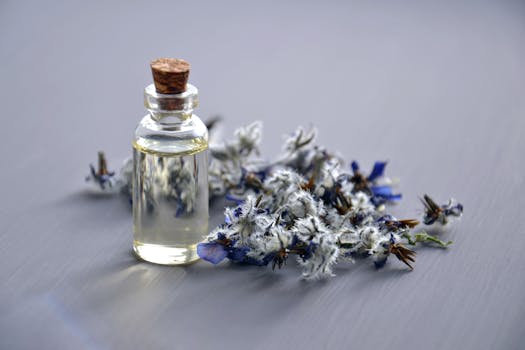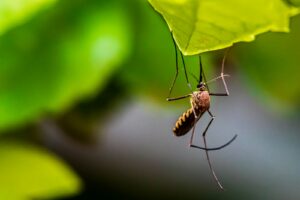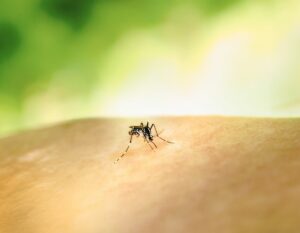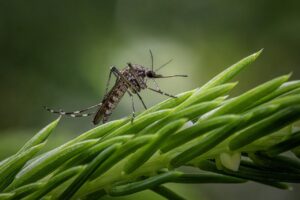Index
- Introduction: The Annoying Summer Enemy and the Importance of Natural Methods
- Know Your Enemy: Anatomy and Life Cycle of Mosquitoes
- What Attracts Mosquitoes? Factors That Attract Them to Humans
- Repellent Plants: Natural Allies Against Mosquitoes
- Effective Essential Oils: Scents That Keep Mosquitoes Away
- DIY Remedies: Natural Repellent Lotions and Sprays
- Prevention Methods: How to Reduce the Presence of Mosquitoes in the Environment
- Innovative Technologies: Electronic Devices to Keep Mosquitoes Away
- Anti-Mosquito Clothing: What to Wear to Protect Yourself
- Diet and Mosquitoes: Foods That Can Affect Attractiveness
- Debunking Myths: False Remedies Against Mosquitoes
- Conclusion: Integrated Strategies for a Mosquito-Free Summer
Introduction: The Annoying Summer Enemy and the Importance of Natural Methods
Mosquitoes: A Recurring Problem in the Italian Summer
The Italian summer is synonymous with sun, sea, and relaxation, but also with an annoying unwelcome guest: the mosquito. These small insects can turn pleasant outdoor evenings into real nightmares, ruining moments of conviviality and rest. Mosquitoes are not just a nuisance; they can also pose a health risk as potential carriers of diseases like West Nile fever or, in some regions, malaria. Their massive presence during the summer months is due to favorable climatic conditions and the proliferation of breeding sites such as stagnant water and wetlands.
The Importance of Natural and Eco-Sustainable Methods
In the fight against mosquitoes, it is essential to adopt an environmentally friendly approach. Traditional chemical methods, such as sprays and synthetic repellents, can be effective but often pose risks to human health and the ecosystem. Moreover, excessive use of pesticides can lead to resistance in mosquito populations, making these products less effective over time. For these reasons, there is growing interest in natural and eco-sustainable methods to keep mosquitoes away. These approaches are not only safer for the environment and health but are often more economical and easy to implement in the long term.
Benefits of a Natural Approach
Adopting natural methods to counter mosquitoes offers numerous advantages. Firstly, it avoids exposure to potentially harmful chemicals, protecting the health of people and pets. Secondly, it preserves the balance of the local ecosystem, avoiding harm to beneficial insects like bees or other pollinators. Finally, many natural remedies can be prepared at home with easily accessible ingredients, making them more economical than commercial products. The effectiveness of these methods, if applied correctly and consistently, can be surprising, providing a valid alternative to traditional chemical repellents.
Know Your Enemy: Anatomy and Life Cycle of Mosquitoes
Anatomy of Mosquitoes: Structure and Functions
Mosquitoes are insects belonging to the order Diptera and the family Culicidae. Their anatomy is characterized by a body divided into three main parts: head, thorax, and abdomen. The head houses compound eyes, antennae, and the mouthparts, the latter being particularly important for their blood-feeding behavior. The thorax has three pairs of legs and one pair of wings, while the abdomen contains the internal organs and, in females, the reproductive apparatus. A distinctive feature is the proboscis, an elongated appendage that females use to pierce the skin and suck blood, essential for egg maturation.
The Life Cycle: From Egg to Adult
The mosquito’s life cycle consists of four distinct stages: egg, larva, pupa, and adult. Females lay eggs in stagnant water or humid areas. After a few days, aquatic larvae emerge from the eggs, feeding on microorganisms and organic particles in the water. The larvae go through four stages of development before transforming into pupae. The pupal stage generally lasts 2-3 days, during which the insect does not feed but undergoes complete metamorphosis. Finally, the adult emerges from the pupa and, after a brief rest period, is ready to fly. The entire cycle, from egg to adult, can be completed in just 7-10 days under optimal conditions.
Behavior and Feeding Habits
Adult mosquitoes have different habits depending on their sex. Males feed primarily on nectar and plant juices, while females require blood meals for egg production. Females are attracted to carbon dioxide emitted from respiration, body heat, and various chemical compounds present on human and animal skin. They are more active during twilight and nighttime hours, although some species can bite during the day. Mosquitoes prefer humid and warm environments for reproduction, which is why their presence increases significantly during the summer months. Understanding these behaviors is crucial for developing effective prevention and control strategies.
What Attracts Mosquitoes? Factors That Attract Them to Humans
Body Emissions That Attract Mosquitoes
Mosquitoes are attracted to various substances emitted by the human body. Carbon dioxide (CO2) is one of the main attractants: mosquitoes can detect CO2 emitted from our breath up to 50 meters away. Body heat is another important factor, as mosquitoes can perceive temperature differences and are attracted to heat sources. Additionally, human sweat contains lactic acid and other chemicals that mosquitoes find irresistible. Even the natural odor of the skin, influenced by our skin microbiome, can make some people more attractive to these insects than others.
Environmental and Behavioral Factors
Apart from body emissions, there are environmental and behavioral factors that can increase attractiveness to mosquitoes. Clothing plays a significant role: dark colors like black, blue, and red tend to attract more mosquitoes than light colors. Outdoor physical activity increases CO2 production and sweat, making a person more detectable to mosquitoes. Even alcohol consumption can increase attractiveness by slightly altering sweat composition. Areas with stagnant water, such as untreated pools or outdoor water containers, are particularly attractive to mosquitoes looking for breeding sites.
Genetic Predisposition and Individual Differences
Scientific research has shown that there is a genetic component to mosquito attractiveness. Some people are naturally more “appetizing” to these insects due to their body chemistry. Factors like blood type can influence attractiveness: mosquitoes seem to prefer type O blood over other types. Individual metabolic rate also plays a role, with people with higher metabolism tending to attract more mosquitoes. Finally, pregnant women are often favored targets, probably due to increased body temperature and higher CO2 production.
The Importance of Knowledge for Prevention
Understanding what attracts mosquitoes is fundamental for developing effective prevention strategies. Knowing the factors that make us attractive to these insects, we can adopt targeted measures to reduce the risk of bites. These can include using natural repellents, choosing appropriate clothing, eliminating stagnant water around homes, and adopting behaviors that reduce our “visibility” to mosquitoes. Greater awareness of these factors can significantly improve the quality of life during the summer months, reducing the annoyance and potential health risks associated with mosquito bites.
Repellent Plants: Natural Allies Against Mosquitoes
The Repellent Properties of Plants
Repellent plants represent an effective natural solution to keep mosquitoes away. Many plant species produce essential oils and volatile compounds that are unpleasant or even toxic to these insects. These substances act by masking the odors that attract mosquitoes or interfering with their olfactory receptors,
making it harder for them to locate potential prey. Using repellent plants not only helps keep mosquitoes at bay but also contributes to creating a more pleasant and fragrant environment in our outdoor spaces.
The Best Anti-Mosquito Plants for the Garden
Among the most effective plants against mosquitoes are:
1. Citronella (Cymbopogon nardus): Considered the queen of anti-mosquito plants, it emits a strong lemon scent that disorients these insects.
2. Lavender (Lavandula): Besides its pleasant fragrance for humans, it produces an odor that mosquitoes find repellent.
3. Mint (Mentha): Its intense aroma is disliked by mosquitoes and other harmful insects.
4. Scented Geranium (Pelargonium graveolens): Contains geraniol, a compound that effectively repels mosquitoes.
5. Basil (Ocimum basilicum): In addition to being a popular culinary herb, basil is an excellent natural repellent.
6. Rosemary (Rosmarinus officinalis): Its strong aroma is particularly effective against tiger mosquitoes.
How to Use Repellent Plants
To maximize the effectiveness of repellent plants, it is advisable to:
1. Place them strategically around outdoor living areas such as terraces, balconies, or garden relaxation zones.
2. Create plant barriers using multiple plants of the same species or combining different repellent varieties.
3. Gently rub the leaves to release more essential oils into the air.
4. Use movable pots to reposition the plants where needed during outdoor events.
5. Grow some of these plants in pots near windows to prevent mosquitoes from entering the house.
Synergy with Other Natural Methods
The use of repellent plants can be effectively combined with other natural methods for more comprehensive protection. For example:
1. Use citronella candles or essential oil diffusers derived from these plants to enhance their effect.
2. Integrate the use of plants with mosquito nets and curtains to create physical barriers.
3. Keep the garden clean and free of stagnant water to reduce mosquito breeding sites.
4. Combine repellent plants with the use of natural repellents on the skin for additional personal protection.
Using repellent plants is an ecological, economical, and pleasant solution to counter the presence of mosquitoes, helping to make outdoor spaces more enjoyable during the summer season.
Effective Essential Oils: Scents That Keep Mosquitoes Away

Repellent Properties of Essential Oils
Essential oils represent a natural and effective solution to keep mosquitoes away. These concentrated plant extracts contain volatile compounds that are unpleasant or even toxic to insects. The repellent action of essential oils is based on their ability to interfere with the olfactory receptors of mosquitoes, masking the odors that attract them or creating an olfactory barrier that disorients them. Additionally, some essential oils have insecticidal properties that can actually kill or paralyze mosquitoes on contact.
Most Effective Essential Oils Against Mosquitoes
Among the most powerful essential oils against mosquitoes are:
1. Citronella Oil: Extracted from the Cymbopogon nardus plant, it is known for its strong lemon scent and repellent effectiveness.
2. Eucalyptus Oil: Particularly eucalyptus citriodora oil, which contains citronellal, a potent natural repellent.
3. Lavender Oil: Besides its pleasant fragrance for humans, it is disliked by mosquitoes and can help soothe mosquito bites.
4. Peppermint Oil: Its fresh and pungent aroma is effective in keeping mosquitoes away.
5. Geranium Oil: Contains geraniol, a compound that mosquitoes find particularly repellent.
6. Tea Tree Oil: Known for its antiseptic properties, it is also an effective insect repellent.
How to Use Essential Oils
To make the most of the repellent properties of essential oils, you can:
1. Use aroma diffusers to distribute the essence in the environment.
2. Apply a few drops diluted in carrier oil to the skin (paying attention to any allergic reactions).
3. Create DIY repellent sprays by mixing essential oils with water and alcohol.
4. Soak bracelets or small porous objects with the oils for personal protection.
5. Add a few drops to candles to create an olfactory barrier in the garden or terrace.
It is important to remember that essential oils are very concentrated and should always be diluted before applying to the skin. Additionally, it is advisable to consult an expert before using them, especially in case of pregnancy, breastfeeding, or health issues.
Synergies and Effective Combinations
Combining different essential oils can enhance their repellent effectiveness. Some particularly effective blends include:
1. Citronella + Eucalyptus + Peppermint
2. Lavender + Geranium + Tea Tree
3. Citronella + Lavender + Eucalyptus
These combinations not only increase the repellent effect but also create more complex and pleasant fragrances for humans. Experimenting with different blends can help find the combination that best suits individual needs and olfactory preferences.
Using essential oils as natural repellents offers a valid alternative to chemical products, allowing enjoyment of outdoor spaces more safely and pleasantly during mosquito season.
DIY Remedies: Natural Repellent Lotions and Sprays

Natural Ingredients for DIY Repellents
To create effective natural repellents against mosquitoes, various readily available ingredients can be used. Among the most effective are:
1. Citronella Oil: Known for its potent repellent effect.
2. Eucalyptus Essential Oil: Particularly effective against tiger mosquitoes.
3. Neem Oil: A powerful natural repellent with insecticidal properties.
4. Apple Cider Vinegar: Its pungent odor repels mosquitoes.
5. Lavender Oil: Besides repelling mosquitoes, it has a pleasant fragrance.
6. Vanilla Extract: A sweet but effective alternative.
These ingredients can be combined in various ways to create customized lotions and sprays, suited to different needs and olfactory preferences.
Recipes for DIY Repellent Lotions
Here are some simple and effective recipes to create natural repellent lotions:
1. Citronella and Lavender Lotion:
– 50 ml of liquid coconut oil
– 15 drops of citronella essential oil
– 10 drops of lavender essential oil
Mix the ingredients and apply to exposed skin.
2. Eucalyptus and Mint Lotion:
– 50 ml of sweet almond oil
– 20 drops of eucalyptus essential oil
– 10 drops of peppermint essential oil
Shake well before use and apply to uncovered areas of the body.
3. Neem and Tea Tree Lotion:
– 30 ml of neem oil
– 20 ml of jojoba oil
– 15 drops of tea tree essential oil
Mix the oils and apply sparingly to the skin.
DIY Natural Repellent Sprays
Repellent sprays are practical to use and can be easily prepared at home. Here are some effective recipes:
1. Citronella and Geranium Spray:
– 100 ml of distilled water
– 50 ml of vodka or food-grade alcohol
– 30 drops of citronella essential oil
– 20 drops of geranium essential oil
Mix all ingredients in a spray bottle and shake well before use.
2. Vinegar and Mint Spray:
– 100 ml of apple cider vinegar
– 100 ml of water
– 20 drops of peppermint essential oil
Combine the ingredients in a spray bottle and apply to exposed areas or the environment.
3. Vanilla and Lavender Spray:
– 100 ml of distilled water
– 1 tablespoon of vanilla extract
– 15 drops of lavender essential oil
– 1 tablespoon of vegetable oil (e.g., liquid coconut oil)
Mix all ingredients well and use as a body or environmental spray.
These DIY remedies offer a natural and economical alternative to commercial repellents, allowing customization of fragrances and adaptation to personal preferences. It is important to always perform a test on a small area of skin before extensive application to rule out any allergic reactions.
Prevention Methods: How to Reduce the Presence of Mosquitoes in the Environment

Eliminating Breeding Sites
Prevention is key
to effectively reducing the mosquito population in the surrounding environment. The first fundamental step is eliminating breeding sites. Mosquitoes lay eggs in stagnant water, so it is essential to:
1. Regularly empty water containers such as saucers, buckets, and watering cans.
2. Keep pools, including inflatable ones, clean and chlorinated.
3. Remove or cover objects that can collect rainwater, such as used tires or tarps.
4. Regularly clean gutters and drainage channels to avoid water stagnation.
5. Treat non-removable water areas, such as ponds or ornamental fountains, with biological larvicides.
These actions, if performed regularly, can drastically reduce the mosquito population in the area.
Creating Physical Barriers
Another effective method to prevent mosquitoes from entering domestic environments is creating physical barriers:
1. Install mosquito nets on doors and windows, ensuring they are free of holes or tears.
2. Use bed nets in the absence of other protections or in particularly infested areas.
3. Employ fans in outdoor areas such as verandas or patios, as mosquitoes struggle to fly in the presence of air currents.
4. Consider installing misting systems with natural repellents for large outdoor areas.
5. Keep the lawn short and regularly prune hedges and bushes to reduce resting sites for adult mosquitoes.
Garden and Green Area Management
Proper garden and green area management can significantly contribute to reducing the presence of mosquitoes:
1. Choose repellent plants like citronella, lavender, mint, and geraniums to create natural barriers.
2. Avoid excessive watering, which can create water stagnation.
3. Use mature compost and avoid the accumulation of leaves and organic debris that can retain moisture.
4. Encourage the presence of natural mosquito predators, such as bats and insectivorous birds, by installing nesting boxes.
5. Consider introducing larvivorous fish in ponds or ornamental lakes.
Implementing these prevention strategies can significantly reduce the mosquito population in the surrounding environment, making outdoor stay more pleasant and safe during the summer season.
Innovative Technologies: Electronic Devices to Keep Mosquitoes Away
UV Lamps and Electronic Traps
UV lamps and electronic traps represent another category of technological devices for mosquito control. These devices use the attraction of insects to ultraviolet light to lure and then capture or eliminate them. The most sophisticated traps combine UV light with CO2 emission and other chemical attractants to increase their effectiveness. Once attracted, insects can be eliminated through electric shocks or suction systems that trap them in special containers. These devices are particularly effective in closed or semi-open environments such as verandas, gazebos, or large terraces. It is important to place them strategically, away from areas frequented by people, to avoid attracting mosquitoes to inhabited spaces.
Automatic Misting Systems
Automatic misting systems represent an advanced technological solution for mosquito control in large outdoor spaces. These systems consist of a network of nozzles strategically installed in gardens, courtyards, or green areas, connected to a tank containing a repellent or insecticide solution. At programmed intervals or activated by motion sensors, the system releases a fine mist that creates a protective barrier against mosquitoes. The solutions used can be based on natural pyrethrins or other eco-friendly compounds, ensuring long-lasting effectiveness with minimal environmental impact. The most advanced systems can be controlled via smartphone apps, allowing personalized management and optimization of misting cycles based on environmental conditions and local mosquito habits.
Future Prospects: Nanotechnologies and Smart Repellents
Research in the field of mosquito control technology is exploring increasingly advanced solutions. Among the most promising prospects are:
1. Nanotechnologies: Development of fabrics and surfaces treated with repellent nanoparticles that gradually release active substances against mosquitoes.
2. Smart Repellents: Wearable devices that analyze environmental and body parameters to release the right amount of repellent at the right time.
3. Genetic Modification Systems: Technologies aiming to reduce mosquito populations by releasing genetically modified sterile specimens.
4. Anti-Mosquito Drones: Use of drones for monitoring and targeted treatment of hard-to-reach areas.
These innovations promise to offer increasingly effective and targeted solutions for mosquito control, combining high technology and environmental respect.
Anti-Mosquito Clothing: What to Wear to Protect Yourself
Fabrics and Colors to Prefer
Choosing the right clothing can make a big difference in protection against mosquito bites. The most effective fabrics are tightly woven ones, such as heavy cotton, nylon, or synthetic materials, which mosquitoes struggle to penetrate with their proboscis. It is advisable to opt for light-colored garments, such as white, beige, or pastel yellow, as mosquitoes are attracted to dark colors that absorb more heat. Additionally, light fabrics make it easier to spot mosquitoes that land on clothes.
Protective Clothing Items
For optimal protection, it is important to cover most of the body, especially during the hours of highest mosquito activity (dawn and dusk). Here are some particularly effective clothing items:
1. Long-Sleeved Shirts: Preferably in light and breathable fabrics for comfort on summer evenings.
2. Long Pants: Opt for loose and comfortable models, avoiding jeans or tight fabrics that mosquitoes can bite through.
3. High Socks: Protect the ankles, one of mosquitoes’ favorite spots.
4. Closed Shoes: Sandals and flip-flops leave feet exposed, better to choose sneakers or shoes that fully cover the feet.
5. Wide-Brimmed Hats: Offer additional protection for the face and neck.
6. Light Jackets or Sweaters: Useful for cooler evenings and for complete arm protection.
Clothing Treated with Repellents
An innovation in the field of anti-mosquito clothing is represented by garments treated with repellent substances. These clothes are impregnated with permethrin, a synthetic insecticide that repels and kills mosquitoes on contact. The effectiveness of these treatments can last up to 70 washes, offering long-lasting protection. Available garments include:
1. Treated T-shirts and shirts
2. Repellent pants and shorts
3. Anti-insect jackets and vests
4. Hats and bandanas with integrated protection
It is important to note that, although effective, these garments should be used with caution, especially for children and people with sensitive skin. Additionally, it is always advisable to combine treated clothing with other protective measures.
Practical Tips to Maximize Protection
To get the most out of your choice of anti-mosquito clothing, here are some practical tips:
1. Layer clothing to adapt to temperature variations while maintaining good coverage.
2. Tuck pants into socks or boots to create an impenetrable barrier at the ankles.
3. Use elastic bands on wrists and ankles to prevent mosquitoes from entering under clothes.
4. Combine protective clothing with the use of natural or synthetic repellents on exposed body parts.
5. Wash treated garments regularly following the manufacturer’s instructions to maintain their effectiveness.
6. Consider using head nets in situations of particular exposure, such as hiking in high mosquito areas.
By adopting these clothing strategies, in combination with other prevention methods, it is possible to significantly reduce the risk of mosquito bites, fully enjoying outdoor activities during the summer season.
Diet and Mosquitoes: Foods That Can Affect Attractiveness
Foods That Attract Mosquitoes
Diet can play a significant role in attractiveness to mosquitoes. Some foods can alter body odor or sweat composition, making us more appealing to these annoying insects. Among the foods that can increase attractiveness are:
1. Beer and Alcohol: Alcohol consumption increases body temperature and the production of ethanol in sweat, attracting mosquitoes.
2. Foods Rich in Potassium: Bananas, avocados, and nuts can increase potassium levels in the blood, making us more attractive.
3. Sugary Foods: Sweets and sugary drinks can alter sweat composition, attracting mosquitoes.
4. Red Meat: Consuming red meat can increase lactic acid production, a compound that mosquitoes find irresistible.
5. Aged Cheeses: They can influence body odor, making it more attractive to mosquitoes.
Foods That Can Repel Mosquitoes
On the other hand, some foods seem to have repellent properties or can reduce our attractiveness to mosquitoes:
1. Garlic: Contains sulfur compounds that, once metabolized, are excreted through the skin, creating an odor unpleasant to mosquitoes.
2. Onions: Similar to garlic, they contain compounds that can alter body odor to repel mosquitoes.
3. Citrus Fruits: Lemons, oranges, and grapefruits contain vitamin C and other compounds that can modify body odor,
making it less attractive.
4. Green Tea: Rich in catechins, it can influence metabolism and body odor to repel mosquitoes.
5. Herbs: Mint, basil, and rosemary contain essential oils that can act as natural repellents when consumed regularly.
The Importance of Hydration
Drinking plenty of water is essential not only for overall health but also to reduce attractiveness to mosquitoes. Good hydration:
1. Dilutes substances in the blood that attract mosquitoes, such as lactic acid.
2. Helps regulate body temperature, reducing excessive sweating.
3. Promotes the elimination of toxins that can influence body odor.
4. Keeps the skin hydrated, making it less appetizing to mosquitoes.
It is recommended to drink at least 2 liters of water a day, increasing intake during physical activity or in intense heat conditions.
Supplements and Additives
Some supplements and additives can influence our attractiveness to mosquitoes:
1. Vitamin B1 (Thiamine): It is believed to alter body odor to repel mosquitoes, although scientific evidence is mixed.
2. Vitamin B12: Some people report a reduction in mosquito bites with regular intake of this vitamin.
3. Omega-3: Omega-3 fatty acids can influence sweat composition, potentially reducing attractiveness.
4. Probiotics: By maintaining a balanced gut flora, they can positively influence body odor.
It is important to note that the effectiveness of these supplements can vary from person to person and it is always advisable to consult a doctor before starting any supplementation regimen.
In conclusion, while diet can play a role in attractiveness to mosquitoes, it should be considered as part of a broader protection strategy that includes the use of repellents, appropriate clothing, and environmental management.
Debunking Myths: False Remedies Against Mosquitoes
The Myth of “Magic” Plants
One of the most widespread myths concerns the effectiveness of certain plants as natural repellents against mosquitoes. Although some plants like citronella, lavender, or geraniums do contain essential oils with repellent properties, their mere presence in the garden or on the balcony is not enough to keep mosquitoes away. The effectiveness of these plants manifests only when their essential oils are extracted and concentrated. Moreover, the idea that simply placing a pot of citronella near you will protect you from bites is absolutely unfounded. To achieve a real repellent effect, it is necessary to rub the leaves on the skin or use essential oils extracted from these plants, always with due precautions.
The Myth of Ultrasonics
Another false myth concerns the effectiveness of ultrasonic devices against mosquitoes. Many products on the market promise to repel these insects by emitting high-frequency sounds, theoretically annoying to mosquitoes but inaudible to humans. However, numerous scientific studies have shown that these devices are completely ineffective. Mosquitoes do not have an auditory apparatus as we understand it and are not affected by these sounds. Some experiments have even shown that in some cases the presence of these devices can increase mosquito activity in the surrounding area. It is therefore advisable to avoid investing in these products and focus on more effective prevention and protection methods.
The Myth of Vitamin B as a Natural Repellent
There is a long-standing belief that taking vitamin B supplements, particularly B1 (thiamine), can make our body odor unpleasant to mosquitoes. This theory is based on the idea that vitamin B, once metabolized, is excreted through sweat, creating a repellent odor for insects. Despite this widespread belief, there is no scientific evidence proving its effectiveness. Several studies conducted to verify this hypothesis have found no significant difference in the number of bites between those who took vitamin B supplements and those who did not. It is important to note that a balanced diet generally provides all the necessary B vitamins, and supplement intake should always be supervised by a doctor.
The Myth of Clothing Color
There is a belief that wearing dark-colored clothes attracts mosquitoes more than light colors. While there is a grain of truth in this statement, it is important to understand the real mechanism. Mosquitoes are not attracted to colors per se but to their ability to retain heat. Dark fabrics tend to absorb more heat and therefore create a greater thermal contrast with the surrounding environment, making us more “visible” to mosquitoes that perceive temperature differences. However, the influence of clothing color is minimal compared to other factors such as emitted carbon dioxide, sweat, or lactic acid present on the skin. Wearing light-colored clothes can offer a slight advantage but does not replace the use of effective repellents and other preventive measures.
Conclusion: Integrated Strategies for a Mosquito-Free Summer
The Importance of a Multifaceted Approach
To fully enjoy the summer without the annoyance of mosquitoes, it is essential to adopt an integrated approach that combines various strategies. No single method is completely effective, but the combination of multiple techniques can create an unfavorable environment for these insects. The key strategies include:
1. Eliminating breeding sites by removing stagnant water and keeping the garden clean.
2. Using physical barriers such as mosquito nets on doors and windows.
3. Employing natural repellents like essential oils and repellent plants.
4. Choosing appropriate clothing, preferring light colors and tightly woven fabrics.
5. Adopting a balanced diet and good hydration to reduce attractiveness.
By combining these methods, it is possible to create a multi-layered defense against mosquitoes, significantly reducing their presence and the risk of bites.
Planning and Prevention: The Key to Success
Advance planning and constant prevention are essential for effective mosquito control. Here are some fundamental steps:
1. Environmental Assessment: Identify and eliminate potential breeding sites before the start of mosquito season.
2. Regular Maintenance: Establish a routine of cleaning and maintenance for the garden and outdoor areas.
3. Outdoor Space Preparation: Install mosquito nets, prepare protected areas such as gazebos with nets, and strategically place repellent plants.
4. Stocking Up on Products: Prepare natural repellents, lotions, and sprays in advance to always have adequate protection available.
5. Family Education: Inform all family members about best practices for preventing mosquito proliferation and protecting themselves from bites.
Careful planning and constant prevention can make the difference between a summer plagued by mosquitoes and a pleasant and relaxing season outdoors.
The Importance of Environmental Awareness
In the fight against mosquitoes, it is essential to maintain an ecological and sustainable perspective. The strategies adopted should aim to reduce the presence of mosquitoes without harming the local ecosystem. Here are some key points to consider:
1. Prefer Natural Methods: Opt for natural ingredient-based repellents and treatments whenever possible.
2. Avoid Indiscriminate Use of Insecticides: Limit the use of chemical products that can harm beneficial insects and other organisms.
3. Promote Biodiversity: Encourage the presence of natural mosquito predators, such as insectivorous birds and bats.
4. Responsible Water Management: Implement rainwater collection systems that do not favor mosquito breeding.
5. Community Collaboration: Promote neighborhood initiatives for mosquito control, sharing information and resources.
By adopting an environmentally respectful approach, not only is the mosquito population effectively reduced, but the overall health of the local ecosystem is also preserved.








